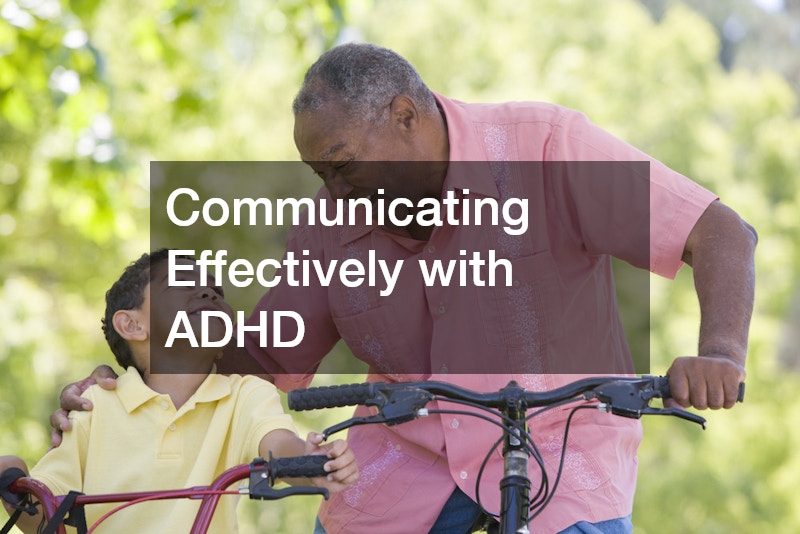Receiving an ADHD diagnosis can feel overwhelming, but understanding the initial steps to take can empower individuals and their families. This article will explore the most common questions and actionable steps to manage ADHD effectively.
How can I educate myself about ADHD?
Understanding ADHD and Its Symptoms
ADHD is a neurological disorder characterized by symptoms of hyperactivity, impulsivity, and inattention. These symptoms can vary significantly from person to person and may manifest differently in children and adults.
Recognizing the symptoms is crucial for developing strategies to manage ADHD effectively in daily life.
Individuals diagnosed with ADHD often experience challenges in maintaining focus, which can impact their performance at work or school. Hyperactivity might be seen as fidgeting or an inability to stay seated, while impulsivity can result in hasty decisions without considering consequences. It’s important to remember that ADHD is a manageable condition with the right approach.
Symptoms of ADHD are not always black and white; they can be influenced by other factors such as environmental stress, co-existing mental health conditions, and individual coping mechanisms. Understanding these nuances requires a compassionate approach to education. By learning and observing, individuals and families can better support those affected by ADHD.
Reliable Resources and Support Groups
Accessing reliable resources is vital for anyone wishing to deepen their understanding of ADHD. Books written by medical professionals and specialists provide evidence-based information that can clarify complex concepts. Websites like CHADD (Children and Adults with Attention-Deficit/Hyperactivity Disorder) offer a wealth of resources.
In addition to online materials, local support groups can offer emotional support and practical advice. These groups create a sense of community among individuals facing similar challenges, providing a platform to share experiences and strategies. Engaging with support groups can alleviate the feeling of isolation often associated with an ADHD diagnosis.
One study found that families participating in ADHD support groups reported higher levels of satisfaction with their disorder management strategies. These groups can bridge the gap between professional medical advice and daily life application. They build a foundation of understanding and connection that is crucial for managing ADHD in the long term.
Consulting with Healthcare Professionals
Consulting healthcare professionals specializing in ADHD can provide a more personalized understanding of the disorder. These professionals can offer insights into the specific nature of an individual’s ADHD and tailor strategies that cater to unique needs and strengths. Medical professionals are equipped to offer guidance about treatment options, including medication and therapy.
Regular consultations can also help track the efficacy of treatment plans and adjust them as necessary. ADHD symptoms can change over time, and what works initially might need modification. This ongoing professional guidance ensures that treatment remains aligned with the individual’s evolving needs.
Treatment Options for ADHD
Medication Management
Medications can be a key component of managing ADHD symptoms, as they can help improve focus, reduce impulsivity, and control hyperactive behaviors. Common medications include stimulants like methylphenidate and amphetamines, as well as non-stimulants like atomoxetine. Collaborating with healthcare providers is crucial to determine the most effective medication regimen.
It’s important to note that medication response can vary widely among individuals, and finding the right balance may require patience and adjustments. Side effects should be monitored closely, and any concerns should be communicated to a healthcare provider promptly. In some instances, combining medication with therapy or lifestyle changes may yield the best results.
Behavioral Therapy
Behavioral therapy is another effective treatment option for ADHD, focusing on modifying negative behaviors and developing positive coping strategies. Through consistent therapy sessions, individuals can learn skills to better manage their symptoms and improve functioning. Techniques can include cognitive-behavioral methods, which target challenging thought patterns.
Therapists work with individuals to establish goals and develop actionable plans to reach them. These strategies can be tailored to specific areas of need, such as improving organizational skills or managing impulsivity. A collaborative approach between therapist and client ensures personalized support throughout the treatment process.
Lifestyle Modifications
Lifestyle modifications can significantly impact the management of ADHD symptoms, with changes in diet, exercise, and sleep having notable effects. A balanced diet rich in omega-3 fatty acids, complex carbohydrates, and proteins can support brain health and stabilize energy levels. Regular physical activity is also beneficial, as it helps release pent-up energy and improve concentration.
Establishing a consistent sleep routine is crucial, as adequate rest can enhance focus and reduce daytime drowsiness. Individuals with ADHD may find it challenging to unwind at night, so creating a calming bedtime routine can help. Practicing mindfulness and relaxation exercises before sleep can further enhance restfulness.
Communicating Effectively with ADHD
Effective communication is fundamental to supporting a loved one with ADHD, fostering understanding and empathy. Using clear, straightforward language can minimize misunderstandings, while active listening helps validate their experiences. Establishing a judgment-free zone encourages open dialogue about challenges and successes.
Empathy is key, as it allows for a deeper connection and appreciation of the struggles faced by individuals with ADHD. By acknowledging their strengths as well as their difficulties, supportive environments can be created where individuals feel valued. Recognizing the importance of patience is also crucial, as progress may be gradual and non-linear.
Frequent check-ins and supportive conversations can reinforce trust, enabling loved ones to openly express their needs and feelings. Support that is both empathetic and practical can foster resilience and adaptability. A commitment to ongoing learning and understanding enhances the relationship, providing a stable foundation for effective support.
The journey following an ADHD diagnosis can be managed with the right information, treatment options, and support measures. Empowerment through education and compassionately addressing the challenges associated with ADHD can lead to more successful outcomes. By taking informed steps and fostering supportive environments, individuals and families can navigate ADHD effectively, improving overall quality of life.
.




